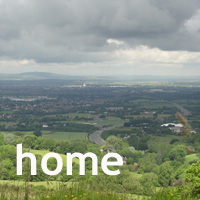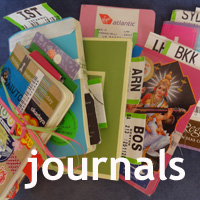A short diversion in Heho
 Sunday, March 22, 2015 at 9:49AM
Sunday, March 22, 2015 at 9:49AM
One of the drawbacks of travelling around Myanmar is that there is no practical option to taking local flights. Though this one today was a mere 25 minutes, it involved all the usual check in procedure and worst of all another really early start because all of these flights leave so early in the morning. So, we were up with a 4.30 alarm, to have breakfast and pack everything up again and meet Sanda at 6. The streets of Mandalay were bustling, because although it’s Sunday for us, most of the people of Myanmar work to a lunar calendar and their days off fall every eight days rather than every seven. So, today was a normal, working day.
Waiting for a flight is interesting. Everyone is given a sticker for their flight and from time to time someone will come to the gate and call something – who knows what, since we don’t speak the language! There will be a rush of people and subsequently, the airline staff will go around looking for the missing passengers, looking closely for the right sticker. Of course, we were fortunate to have Sanda by our side, which was just as well for two flights were called at the same time and it would have been so easy to have gone the wrong way and ended up who knows where!
People waiting for flights with us seemed to have a lot of shopping to take home!
When we finally did board our flight to Heho, we kept a lookout for the Solar Pulse, which we knew was here somewhere. Sure enough, there is was, wrapped in a protective covering.
Arriving at Heho just 25 minutes later, the air was completely different. Here it was hot!
Driving through the small town revealed a different type of person, too. Hmmm! Could be interesting!
A conversation between Sanda and our driver resulted in a short detour, which we thought was a real highlight. Sanda had told us that “Heho” means “cattle market” and what was happening today but exactly that. Would we like to take a look?
Of course we would!!
We began by taking a walk along the perimeter fence where a couple of prize cattle were tied up, their owner not really wanting them to mingle with the rest of them in the ring. The farmer told Sanda that he was hoping to get around 3 000 000 Kyat for each of them – $3000 – but she raised an eyebrow and told us that she thought he’d be lucky.
We wanted to get in closer to the action, so passing the Farmers’ bar – surprisingly quiet – we headed on into the melee.
Although there was no auction as such, the action was centred on a particular deal that was going on, facilitated by a kind of mediator. Some of these farmers had brought cattle to sell and others were looking to buy. Some were just here to see what’s what, including the chap Sanda spoke to to find out what was going on.
All the farmers were wearing the traditional longyi and had the colourful bags strung across their chests. From time to time one would delve into the bag and bring out a wad of banknotes.
I immediately coveted one of those bags
We decided to follow the progress of one transaction. Here’s the cow in question – or rather, here’s the bullock, for these are not dairy cattle but working beasts, bred to wear a yoke and work as part of a team, pulling a cart or a plough. This one is seven years old, we were told, he has a good history and is a fine, strong animal.
His owner, the man on the right of the picture wearing a navy blue top wanted $1075 for him. The man in the straw hat had decided he liked the look of this cow and made an offer of $1050.
The mediator, the chap in the white shirt, chatted to both gentlemen, but the owner stood firm. He was not going to take a penny less than the $1075 he was asking for. At this point, Sanda spoke to one of the other farmers, who agreed that this cow was indeed worth the price – he was only here to look today, but had a cow he was thinking of selling next week, perhaps and he thought that these prices were fair.
The prospective buyer offered $1065.
But the seller was going to take not a penny less than 1075 and took the rope and began to lead the cow away. His strategy worked though, for a few minutes later, the deal was done. Hands were shaken and money changed hands. The successful buyer led his new purchase away and we heaved a sigh of relief. The farmer who had been chatting to Sanda laughed and thought the chap who’d sold the cow had done well.
As we left the market to return to the car, we saw the cow’s new owner walking across the field holding the collar with bells which had been around the cow’s neck and returning it to the farmer who’d just sold it to him.
It was a rather nice way to end our visit to Heho.
 Gill Thomas |
Gill Thomas |  1 Comment |
1 Comment |  Myanmar in
Myanmar in  fun,
fun,  travelling
travelling 







Reader Comments (1)
garnelan e3d3fd1842 https://futureleaders.egyptyo.com/queslopnasa